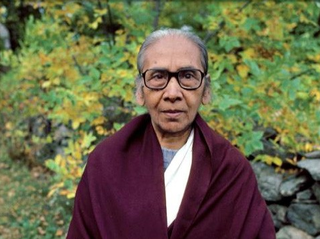A Quote by Helen Keller
Make the most of every sense; glory in all the facets of pleasure and beauty which the world reveals to you...
Related Quotes
Use your eyes as if tomorrow you would be stricken blind. Hear the music of voices, the song of birds, the mighty strains of an orchestra as if you would be stricken deaf tomorrow . . . Smell the perfume of flowers, taste with relish each morsel as if tomorrow you could never smell and taste again. Glory in all the facts of pleasure and beauty which the world reveals to you.
It is not expensive to be beautiful. It takes only a little effort to be presentable and beautiful. But it takes some effort. And unfortunately people think of beauty as luxury, beauty as frivolity, ... or extravagance. Beauty is a discipline, beauty is art, is harmony, in the ideological sense and in the theological sense, beauty is God and love made real. And the ultimate reach in this world is beauty.
A man needs no arguments to make him discern and approve what is beautiful: it strikes at first sight, and attracts without a reason. And as this beauty is found in the shape and form of corporeal things, so also is there analogous to it a beauty of another kind, an order, a symmetry, and comeliness in the moral world. And as the eye perceiveth the one, so the mind doth by a certain interior sense perceive the other, which sense, talent, or faculty, is ever quickest and purest in the noblest minds.
It was the upward-reaching and fathomlessly hungering, heart-breaking love for the beauty of the world at its most beautiful, and, beyond that, for that beauty east of the sun and west of the moon which is past the reach of all but our most desperate desiring and is finally the beauty of Beauty itself, of Being itself and what lies at the heart of Being.
I fell in love with books. Some people find beauty in music, some in painting, some in landscape, but I find it in words. By beauty, I mean the feeling you have suddenly glimpsed another world, or looked into a portal that reveals a kind of magic or romance out of which the world has been constructed, a feeling there is something more than the mundane, and a reason for our plodding.
What do I make of all this texture? What does it mean about the kind of world in which I have been set down? The texture of the world, its filigree and scrollwork, means that there is the possibility for beauty here, a beauty inexhaustible in its complexity, which opens to my knock, which answers in me a call I do not remember calling, and which trains me to the wild and extravagant nature of the spirit I seek.
It is important to distinguish between sense-pleasure and sense-desire. There is nothing wrong with sense-pleasure. Pleasure and pain are part of our human experience. Sense-desire, on the other hand, is the grasping at pleasure or the avoidance of pain. This is what creates suffering-grasping and avoidance.
The scientist does not study nature because it is useful to do so. He studies it because he takes pleasure in it, and he takes pleasure in it because it is beautiful. If nature were not beautiful it would not be worth knowing, and life would not be worth living. I am not speaking, of course, of the beauty which strikes the senses, of the beauty of qualities and appearances. I am far from despising this, but it has nothing to do with science. What I mean is that more intimate beauty which comes from the harmonious order of its parts, and which a pure intelligence can grasp.
The only person in all the world who can give you pleasure, or deny it, is yourself. No matter how much we love someone, the decision to experience pleasure, and to make room for it in our lives, is an internal one. If you are resistant, you could be around the most joyous people in the world and be miserable.


































